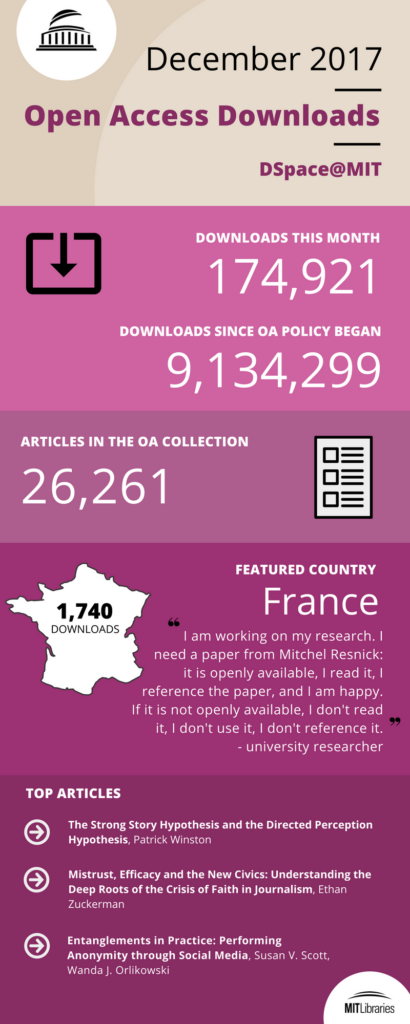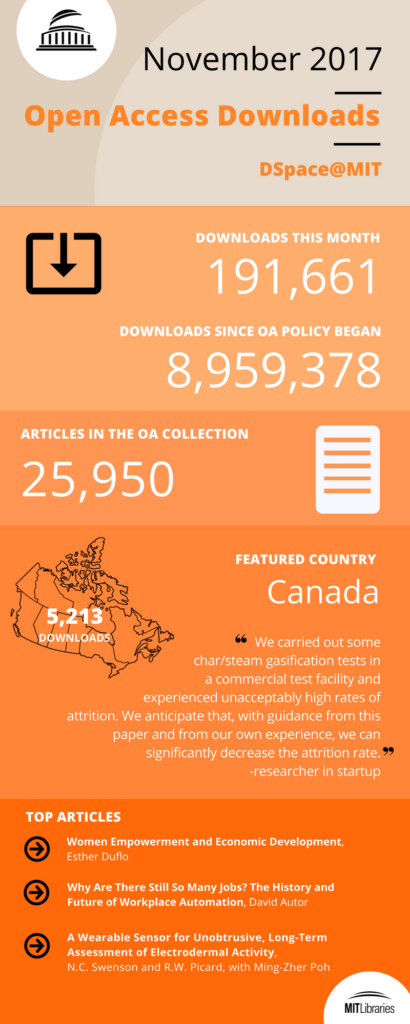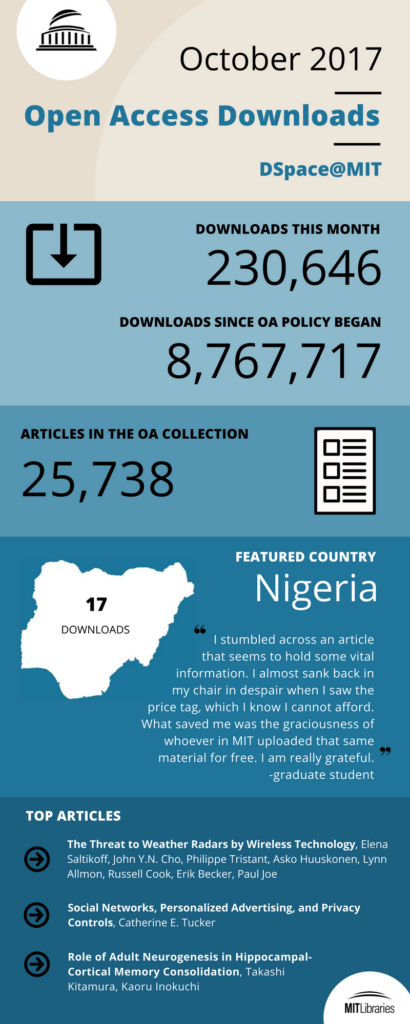 The Open Access Collection of DSpace@MIT includes scholarly articles by MIT-affiliated authors made available through open access policies at MIT or publisher agreements.
The Open Access Collection of DSpace@MIT includes scholarly articles by MIT-affiliated authors made available through open access policies at MIT or publisher agreements.
Each month we highlight the month’s download numbers and a few of the most-downloaded articles in the collection, and we feature stats and comments from a particular country.
See your own download statistics or those of a particular MIT department, lab, or center, or find more reader comments and global statistics.
Top downloaded articles for December:
The strong story hypothesis and the directed perception hypothesis, Patrick Winston
Mistrust, efficacy and the new civics: Understanding the deep roots of the crisis of faith in journalism, Ethan Zuckerman
Entanglements in practice: Performing anonymity through social media, Susan V. Scott, Wanda J. Orlikowski
Questions or comments? Email us: oastats@mit.edu
 The
The 
 One of the most contentious issues facing Massachusetts voters on November 8 was in
One of the most contentious issues facing Massachusetts voters on November 8 was in